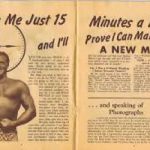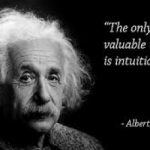So how do you develop a Coaching Habit?

Unless you’re a monk and you wear one, a habit is often viewed in a negative light. Fast food, Facebook and swearing are all habits we currently have a real problem with in the UK.
Yet, most of our daily lives are habitual. Whether it’s the way we brush our teeth, the time we have our first morning cuppa, or even the way we hang the toilet roll (paper hanging down either front or back) we all have habits, plenty of them.
In our professional lives, too, habits abound. The monthly manager’s meeting, called whether there are important matters to discuss, or not. Even worse, the dreaded weekly conference call, intended to energise and motivate but often producing thoughts of suicide…or occasionally, murder.
And the most prevalent management habit? Giving advice, loads of it, tons of the stuff, whether it’s wanted, appreciated, acted upon or not.
Do you remember the Harry Enfield ‘Only Me’ character? An obdurate little man, wandering around dispensing random ‘pearls of wisdom’ to the unsuspecting, who were happily getting on with their work, thinking he knew everything and yet usually leaving disaster in his wake. “You don’t want to do it like that, do it like this”… I’ve worked for people very similar!
The problem is that most managers have spent years thinking that their job is about doling out advice. They’ve been praised for it, promoted for it. Often spending years accumulating knowledge, either through study and/or work experience. It’s on their CV’s, listed as qualifications or courses attended.
So, armed with all this information, they want to use it to help others. Very laudable, yet usually pretty futile. People simply don’t take advice. Period. And they’re particularly resistant when they perceive their line manager or supervisor knows less than they do, whilst feeling they can’t be trusted to get on and do the job they’re paid to do.
Yet, the vast majority of people will respond much more positively to coaching. Why?
Well, consider for a moment how you feel when someone asks how you are and then actually listens fully to your answer. Then try to remember a time, if there was one, when someone at work, a colleague, or a manager, asked you for your advice or input into a problem. How did that make you feel? Probably valued and appreciated, you were likely pleased to be asked and maybe even felt this was testament to your standing in the company.
Yes, the simple acts of asking rather than telling and listening rather than speaking can do wonders for the engagement of employees.
How much time does this take? Well, how long does it take to ask ‘how’s business?’
Or, ‘What’s happening’? ‘What do you think?’ ‘What could we do here’? Or, ‘I’d really appreciate your input on this’?
And once we ask the question, and ensure we listen to the answer, so many other simple opportunities to further develop a great working relationship will come. Depending on the employees’ response, there may be an opportunity to give praise, thanks or recognition. Or we may get an idea that can be developed, or perhaps a great chance to delegate some responsibility, thus potentially saving time for busy managers.
The benefits that can come from regular coaching are enormous, both in material and more altruistic terms. But we have to do this regularly. It has to become the default, rather than the short-term fix of simply telling people what to do.
Michael Bungay Stanier has recently written a brilliant book called The Coaching Habit, specially aimed at the time-pressed manager. In it he outlines some excellent techniques to ensure that coaching becomes a regular part of the manager’s tool kit.
The ideas are very simple, the application not always so, but in an environment where managers increasingly find themselves squeezed between umpteen urgent deadlines and the growing demand from employees to be developed and fully utilised, coaching is not a ‘nice to have’, it’s a must.
So, simply put, and to quote the full title of Michael’s book, ‘Say less, ask more and change the way you lead forever’!


